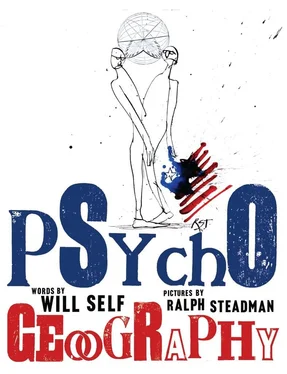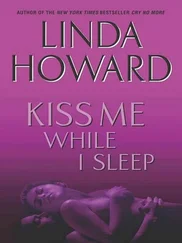I gain the crest of the hill and there it is, falling away behind me, swags and ruches of greenery and brick, under the blue-painted ceiling of its recent conversion: New London, city of the toppermost property prices. I can see a golden drop of sunlight on the glans of the Swiss Re Tower (Lord Foster’s phallus, commonly known as the Gherkin), and the inverted pool table of Battersea Power Station. I can see the Hampstead massif and the Telecom Tower. I can see my life, entire, in a single saccade.
Then I go over the top, past the Royal Star and Garter Home, a redbrick semi on steroids with neoclassical breast implants. Below me the Terrace Gardens fall away, beyond them Petersham Meadows and then the river again, boats moored in mid-stream. The Thames shines bright between wooded banks that are deceptively countrified. I trudge down Richmond Hill, past the kind of shops my mother would have damned as ‘chi-chi’ — although not without a trace of envy. Where did she get all this snobbery from? True, she attended Richmond Hill High School herself. But I thought that was Richmond Hill on Long Island. Did they anticipate Nancy Mitford there? Was every particular divided into U and Non-U? Expressions my mother also coveted as her own.
Mediterraneo, The Gooday Gallery (in this stands a man, wearing a shirt, the entire back of which is the more comely front of Botticelli’s Venus), Natural Flooring, a florist called The Wild Bunch, a kids’ clothing store dubbed Neck and Neck. After she died, in the neurotic sediment of her diaries and journals — forty years of minutely described sexual obsession and phobia — I found lists of these: ‘The Mane Event’, ‘Hair Today’; punning retail concerns had preoccupied her. Why, Mother? Oh, why?
At Richmond Bridge the Riverside development is to my right: a grotesque confabulation of old and new-tricked-out-as-old. The nineteenth-century town hall, the eighteenth-century Heron House, Laxton’s 1856 Italianate Tower House — all have been soldered together by an awful mucilage of Georgian-cum-Palladian office bollix, complete with cupolas and columns aplenty. Nine thousand nine hundred square metres of office space in all, falling down to the river in series of terraces; grassy ghats upon which the bourgeoisie should rightfully be burnt alive for sanctioning such ugliness at all. It’s courtesy of the ‘architect’ Quinlan Terry, natch, pseudo-artificer by appointment to Chucky ‘HRH’ Windsor, who would doubtless concur with his protégé that ‘Modernism is a sign of the fall from grace’.
It’s suitable that this — my first and last Thames crossing — should be mediated on the one hand by Our Tel and on the other by the bridge itself: five pure spans, rendered in Portland stone, completed in 1777, it’s the oldest in the burgh. London — as has been remarked — was only a Modernist city a hundred years ago. Ever since, it’s been in steady flight from the present, putting on its airbrakes with an anguished howl, landing on the short airstrip provided by a ha-ha, in an imagined, Arcadian past.
And there, standing in the middle of the bridge, as if detached from his own rather less Arcadian past, wearing a khaki anorak and sporting a woolly watch cap, a canvas army surplus rucksack on his shoulder, an Ordnance Survey map poking from his pocket, is Nick Papadimitriou, waiting to walk with me the last nine miles to Heathrow. Nine miles that will take us through territory he knows well: Twickenham and Hounslow Heath, where he botanises and meditates, Feltham, where he did time in borstal. Further on is the site of the new Terminal 5, formerly the Bedfont Court Estate, which Nick has hymned in his own writings as a lost Arcadia of municipal smallholdings. Here, at Richmond Bridge, and then, as we walk down the embankment footpath beside Marble Hill Park, my very different land marches with Nick’s.
Initially, I can’t quite connect with Nick. I’m still lost in my own reveries; shitty little memories. In the year before I finally quit drink and drugs, I struggled — like the quadriplegic I then was, all four limbs withered by decades of inanition — to get going. I couldn’t yet counsel the notion of actually taking steps, so I flirted with wacky forms of transport. One of these was a Go-Ped, a tiny scooter with a 22cc engine tacked on to it. For a while, officialdom could not even apprehend these oddities, and I caromed about town on mine, to score on the corner of Oakley Street in Chelsea.
A maroon Ford Mondeo, the dealer at the wheel. He styled himself ‘Andy’, but we all knew his real name was Anand. Two of white, one of brown. Dropped from his mouth into my palm. Wife and kids away for the weekend — out of sight is out of mind for junkies. Hell, in sight is also out of mind. But I couldn’t just get stoned any more; there was too much guilt, denial wasn’t a river in Egypt any more, it was the Wandle, diverted through my own back garden.
So, I got loaded and drove my Go-Ped along the river to Richmond, believing this to be a healthy outing. All the way, on a hot summer’s day, sweating through Mortlake, annoying families with its ghastly whine. I gave up at Our Tel’s dreadful Riverside uglification and took a black cab home. Pity poor me. Inward bound, or as my family had every reason to scream: ‘Duck! Incoming fuckwit!’
More than a decade earlier I had held the implausible job title of ‘Senior Playleader’, and worked at the adventure playground in Marble Hill Park. It was run by the Greater London Council, which held suzerainty over great swathes of the city’s parkland. But that was then; like the evanescent empire of Alexander the Great, the GLC–London’s only citywide governmental body — had disappeared, banished by Thatcher, the Finchley demagogue. The only relevant continuum, between 1985 and 1999, was my own smack habit.

I can see the adventure playground as Nick and I walk beside the river, past the implausible bashes of what must be river gypsies, longhairs with weedy tresses, temporarily run aground. See it, but it looks run down, in all probability by the local authority that took it over when the GLC folded. Adventure playgrounds — a peculiarly London phenomenon; the kinder-torture-gartens of the Blitz, established on bomb sites in the 1950s. They were always harum-scarum places, the apparatus toshed together out of railway sleepers and sections of telegraph poles. Six-inch nails planted in them, rusty hooks to catch urban sprats.
I loved them when I was a kid — the kids I supervised in the mid-1980s loved them quite as much, but they couldn’t survive the safety industry, oh no. An industry still nascent on the baking afternoon in July 1985, when I left the kids and the rest of the staff, grouped round a black and white TV, and in the full, ruddy colour of my VW Scirocco GTi (given to me by a wealthy friend, later sold for an ounce of cocaine), drove at speeds well in excess of 80 mph, back to the flat in Kensington that was another part of the same friend’s largesse. While 1.5 billion people in one hundred countries watched — live! — Midge Ure yodel ‘Oooooh, Vienna!’ I had a hit of smack, and then drove back out to Marble Hill, all in under an hour.
There was a retarded kid called Phil — now, I daresay, he’d have special needs, but then he ran, roaring, around the adventure playground, a great lummox in a duffel coat, even on the hottest afternoons, bellowing at the other kids, who screamed and taunted. Care in the community was afforded both of us. Happy days, no?
Nick and I pass by Marble Hill House, a delightful Palladian villa built for some kingly mistress or another. Pope visited, Walpole visited — I’ve never been in. But then I’ve been to Agra and not the Taj Mahal, Grenada and not the Alhambra. Addiction can do that to you, clamp on the brick-wall blinkers so that for decades you trot around in circles, wherever you may be. I’ve awoken now, in my forties, to find myself in an unexplored sylvan glade. Is it any wonder I can’t stop pacing forwards?
Читать дальше













